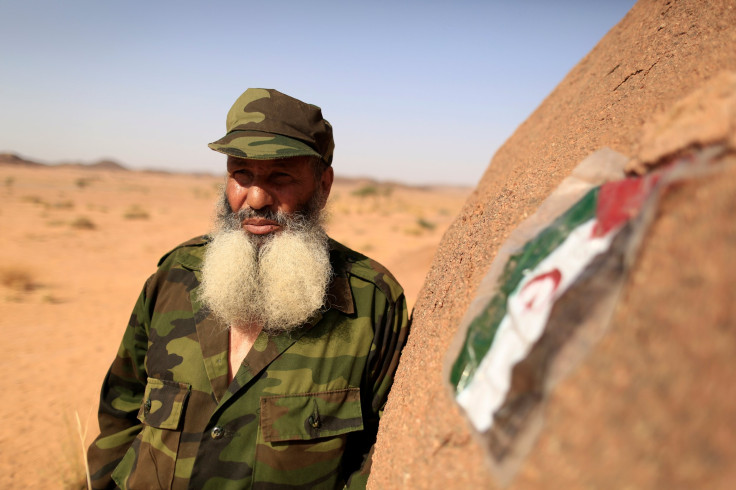Morocco Western Sahara Territory Dispute: Troops Exit Buffer Zone But Kingdom Won't Recognize Polisario Independence

Morocco's King Mohammed VI ordered troops Sunday to pull back from a United Nations buffer zone in Western Sahara, a former Spanish colony that has sought independence for years. The decision brings to a close a year of tense global negotiations over the territory after Morocco moved into the area a year ago in defiance of a U.N. ceasefire agreement.
Morocco claims the territory, but the Polisario independence movement has demanded a vote on independence. The decision came after discussions between King Mohammed VI and U.N. Secretary General Antonio Guterres, who urged all parties in a statement released Saturday to “unconditionally withdraw all armed elements from the Buffer Strip as soon as possible.” A day later, the Moroccan Foreign Ministry said in a statement Sunday that King Mohammed had ordered “a unilateral withdrawal from the zone” because of the U.N. Secretary General’s recommendations.
Polisario declared Western Sahara independent from Spain in the 1970s and fought a guerilla war against Morocco until the United Nations brokered the 1991 ceasefire. The truce deal called for an independence referendum, but that has yet to happen.
The global community had feared renewed conflict after Morocco crossed into the disputed territory last year claiming they were conducting a road clearing. Polisario sent troops to confront the Moroccan forces, prompting U.N. peacekeepers to move into the territory to keep the groups from fighting.
Morocco's military actions in the region saw it leave the Africa Union in 1984 after the government alliance recognized Western Sahara as sovereign, becoming the only country in Africa that was not a member. But the kingdom seems to be reconsidering its approach. African leaders admitted Morocco back into the union during a meeting in Addis Ababa, Ethiopia, on Jan. 31
Western Sahara, on the north-west coast of Africa, was annexed by Morocco in 1975. It is known for its significant phosphate reserves and offshore fishing. The conflict over the disputed territory has fueled a refugee crisis in the region, with thousands of refugees residing in camps over the border in Algeria.
The UN Security Council has called for “a just, lasting and mutually acceptable political settlement which will provide for the self-determination of the people of Western Sahara.”
Morocco's deputy foreign minister, Nasser Bourita, said earlier this month the kingdom would "never recognize" Western Sahara's independence.
"Not only does Morocco not recognize — and will never recognize — this so-called entity, it will redouble its efforts so the small minority of countries, particularly African, which recognize it, change their positions," Bourita said.
© Copyright IBTimes 2024. All rights reserved.






















